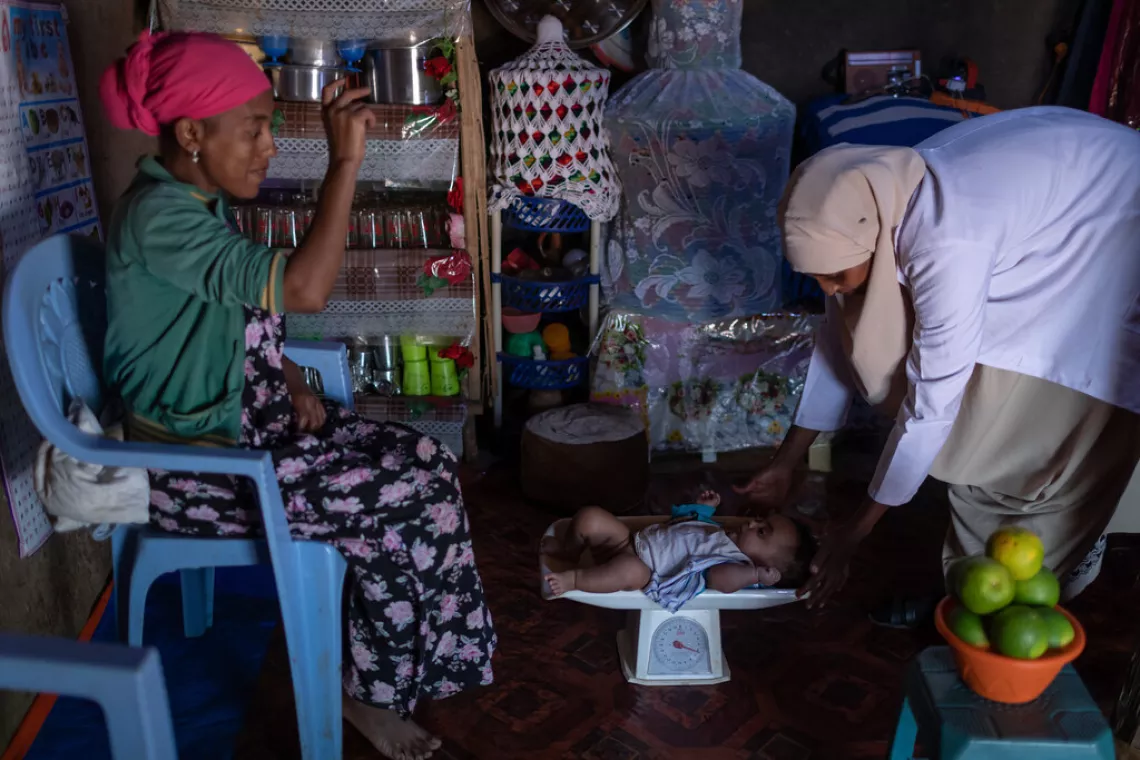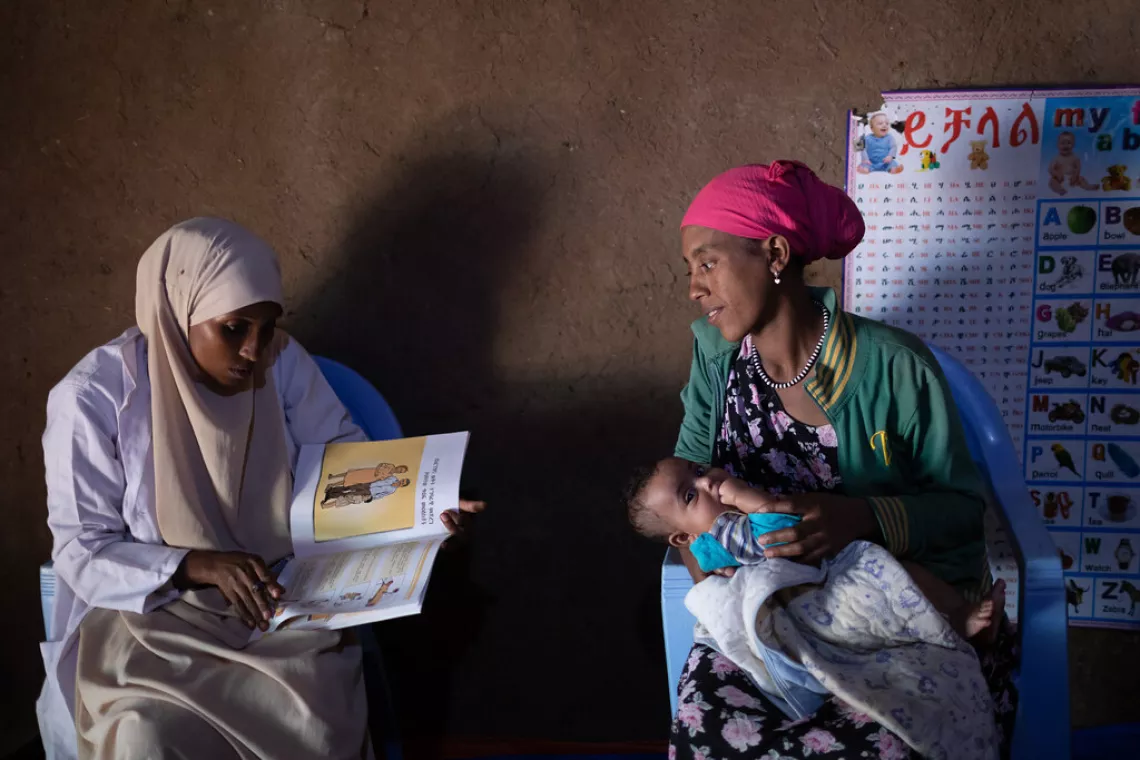From Pregnancy to Childbirth
Hopes and challenges of saving mothers and babies in rural Ethiopia

The Benishagul-Gumuz region of Ethiopia has the highest rate of neonatal mortality in the country. 55 newborn babies die in every 1000 live births which is much higher than the national average of 33. The region also has the second-highest number of deaths in children under the age of five1. Low care-seeking behaviour of the community, poor or suboptimal quality of services provided by health facilities and lack of essential medical supplies hamper maternal, newborn and child health services. In addition, the poor security situation in the region is also disrupting much-needed services. To save more babies and mothers in the region, UNICEF is running a five-year project which is supported by the Korean International Cooperation Agency (KOICA). The project focuses on improving the capacity of health facilities and improving the care-seeking behaviour of the community. This photo essay highlights the great work of health workers in different tiers of the health system who strive to save mothers and their children.
Sadia Abdulahi, a well-experienced health extension worker in Agusha village, attends to Zubeida Abdurahim who is pregnant with her first child. In rural Ethiopia, pregnant women are expected to do at least four focused antenatal follow-ups in the course of their pregnancy, two visits at a health center and two in a health post. Health workers like Sadia first identify pregnant women in the villages and register them. Then they encourage them to do the first antenatal care visit in the health centre where there is a laboratory and other advanced services. The pregnant women bring feedback from the health centre back to the health post so that the village health extension workers can do further follow-up. Once a month in a convenient village site, pregnant women assemble to attend ‘pregnant women conferences’ led by health extension workers. These sessions help the women to encourage each other, support those who fall behind on their antenatal care visits, share experience among women, and learn key behaviors for the newborn and the mother during pregnancy, at birth, and in the early post-natal period.

Antenatal care visits help to identify problems early on and save the lives of mothers and babies. When Kerima Suleiman was pregnant with her second child, she was suffering from high blood pressure. Sadia identified her condition and referred her to Assosa hospital. “I knew it was serious,” says Kerima.” I was worried about what will happen to me and my unborn child. They gave me some medicine and I came back home.”

Sadia didn’t spend a day without seeing Kermia who lives very close to the health post. She makes sure that Kerima took her medication and gets enough rest. “I felt like something bad might happen to her at any time. I used every opportunity to see her,” adds Sadia. After anxious moments of a dreadful pregnancy, Kerima finally gave birth to a healthy baby boy “Had it not been for her [Sadia], I would have been in trouble. She is my caretaker and now we are like family.”
Now Kerima’s boy Mustafi Harun is three days old and Sadia is paying the early postnatal home visit. This is a critical time for both Mustafi and his mother. Mothers and newborns in rural Ethiopia are dying mainly because of preventable and treatable conditions. This could be averted with the provision of quality early postnatal home visits like Sadia is doing with Kerima and her baby.


A little far from where Kerima lives, another health extension worker Hawa Mohammed weighs four months old Elham Mohammed on a little scale. Then, she continues checking the baby’s breathing pattern, temperature and any sign of infection. Elham is growing healthy thanks to her mother Lubaba Tilahum who is taking good care of her daughter with advice from Hawa.

But not all children arrive and thrive like Elham. That is why critical care is needed for children born prematurely and with other complications. In Assosa Hospital’s neonatal intensive care unit (NICU) nurse, Rawda Mohammed closely monitors a child who was born prematurely. As part of the UNICEF programme to strengthen the capacity of health workers and improve service delivery, she received clinical mentorship and quality improvement coaching training on neonatal case management. “The training we took will help us provide quality services. I am a mother myself and helping babies survive gives me the ultimate satisfaction.”

In Bambasi Health Centre’s maternity ward, midwife Semira Abulhassen checks on Mastura Atayib who is ready to deliver her baby. Mastura is admitted to the health centre early as this is her tenth pregnancy. She needs close follow-up by skilled birth attendants. To improve the care provided for the women and newborns during labour and delivery, UNICEF with support from Korea International Cooperation Agency (KOICA) trains, and mentors midwives and nurses on basic emergency obstetric and newborn care (BEmONC).


In addition, health workers are also trained to better assess, classify, treat and follow-up sick young infants (from birth - two months) and sick under-five children. The Integrated Management of Newborn and Childhood Illnesses (IMNCI) case management training helps nurses like Shamia Kelifa who manages the under-five Outpatient department of Bambasi Health Centre. The support from KOICA helps UNICEF and partners to save the lives of mothers and babies.





